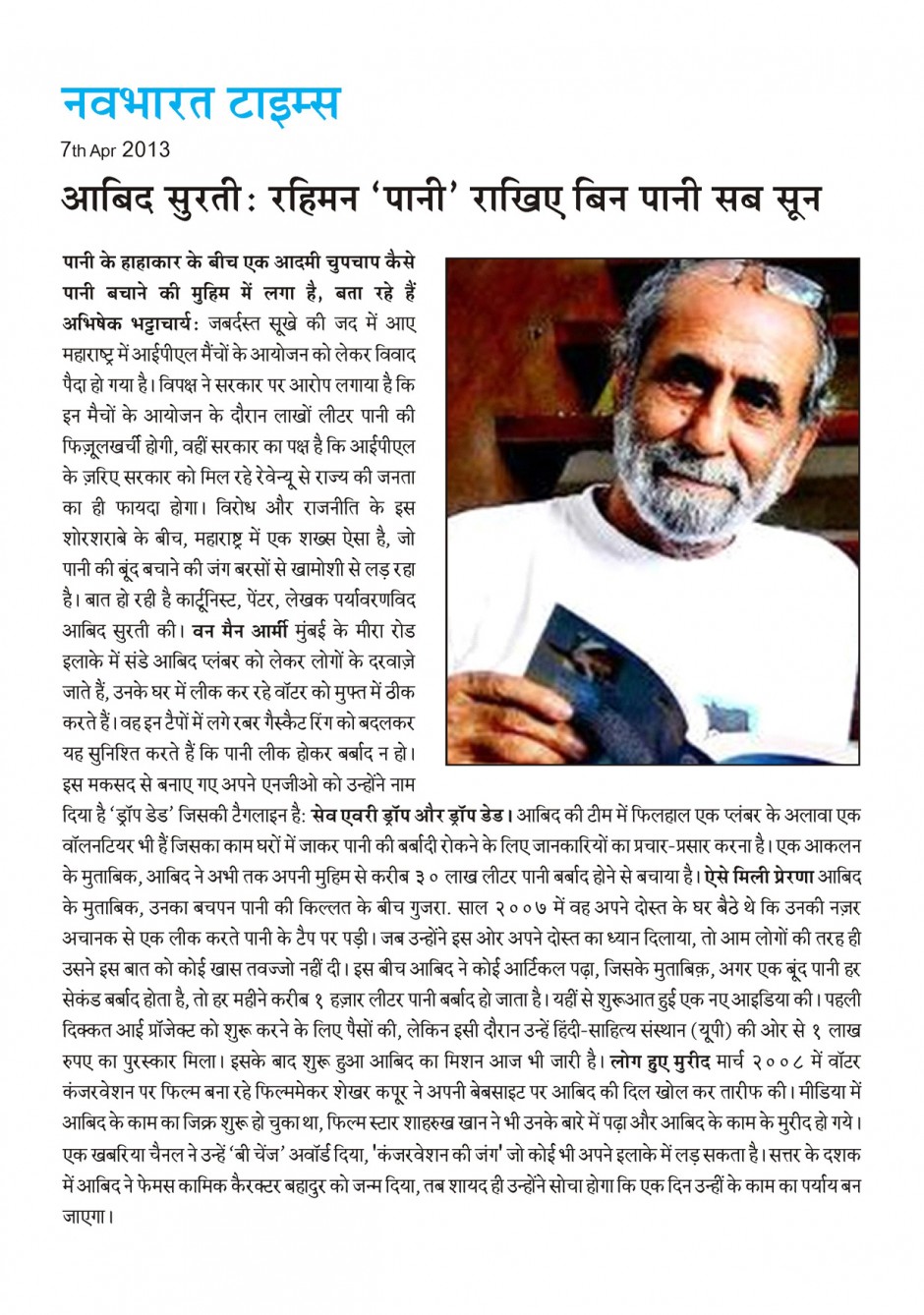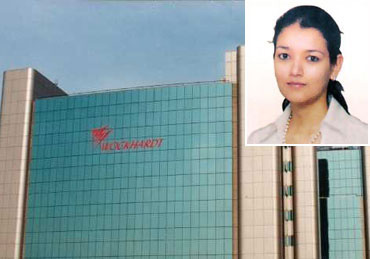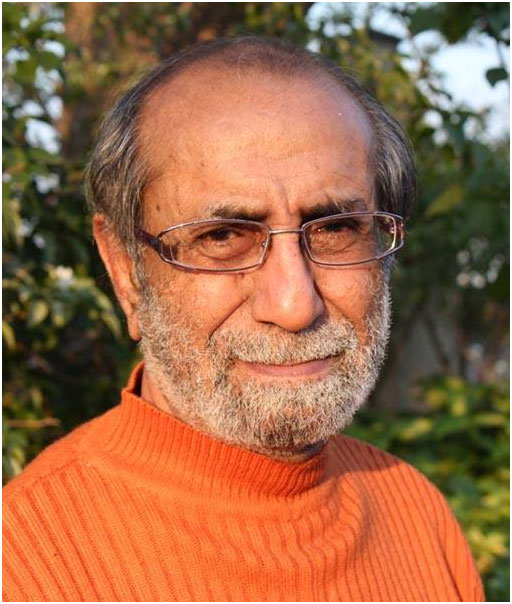1. Man on a mission: “Bhule Bhatke Tiwari” reunites lost Kumbh Mela pilgrims with loved ones Fondly known as “Bhule Bhatke Tiwari”, Raja Ram Tiwari founded the Bharat Seva Dal and made it his life’s mission to ensure that families found their way back to each other if they were separated at the infamous...
Bin Paani Sab Soon
Navbharat Times Dated 7th April 2013 A story on Aabid Surti in Hindi...
Invitation to speak at the Indus Club
Invitation to speak at the Indus Club Dear Aabid, It was a pleasure meeting you on 20th July at the Mumbai Heroes awards. I wanted to invite you to come and speak about `Drop Dead Foundation’, your journey so far and your future plans for this impactful social business at the Indus Club. I will...
The DDF initiative has become viral
The DDF initiative has become viral Now its not just Indian, its global. Italiano · India: risparmiare acqua riparando rubinetti difettosi Français · Réparer gratuitement les robinets pour économiser l’eau en Inde Español · Reparando grifos para ahorrar agua en India Malagasy · Fanamboarana Ireo Paompy Mitete Ho Fikajiana Ny Rano Any Inde русский...
Appointment for Rajya Sabha
Appointment for Rajya Sabha TV’s programme ‘Guftagoo’ Dear Aabid Surtiji, We want to have a heart to heart interview with you for Rajya Sabha TV’s programme Guftagoo. Guftagoo is an explorative-inquisitive and intimate conversation with celebrities and important people from various fields. Its a half an hour show. It is an attempt to put...





